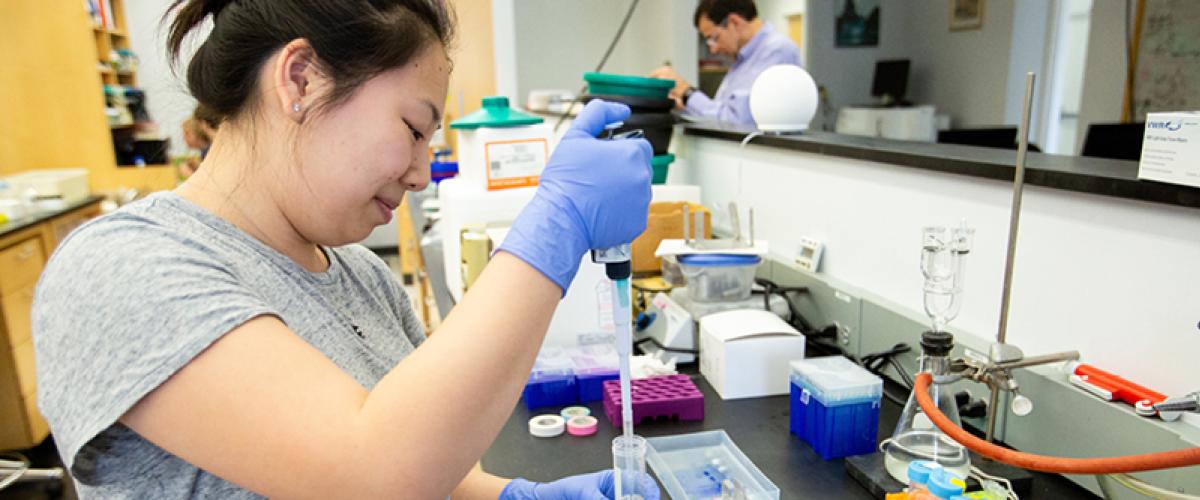
The following programs are administered in the School of Medicine by the Office of Biomedical Graduate Education (OBGE).
Each PhD program has its own course work and preliminary exam requirements, but all programs follow a general academic pattern. The first year is generally devoted to course work and laboratory rotations. At the beginning of the second year, students enter their thesis labs, finish course work and assemble dissertation committees. At the end of the second year, students complete their preliminary exam, which is generally based on their proposed dissertation project. After passing the preliminary exam, the student is fully devoted to research. Some programs have a teaching requirement but all students can serve as teaching assistants with the approval of their dissertation mentor.
Learn more about specific departmental requirements, offerings, leadership, and faculty on each program’s webpage.
- Biochemistry
- Biostatistics
- Cell & Molecular Biology*
- Cell Biology (non-admitting)
- Cognitive Neuroscience†*
- Computational Biology & Bioinformatics*
- Developmental & Stem Cell Biology†*
- Immunology
- Integrated Toxicology & Environmental Health Program †*
- Medical Physics
- Medical Scientist Training Program - MD/PhD
- Molecular Cancer Biology
- Molecular Genetics & Microbiology
- Neurobiology
- Pathology
- Pharmacology
- Population Health Sciences
- University Program in Genetics & Genomics*
† Admitting program
Admitting interdisciplinary programs offer students an opportunity to develop foundational skills with interdisciplinary faculty from the admitting program in the first two years of study. Students then affiliate into a degree-granting program to join a lab, continue study, and earn the Ph.D. degree.
*Interdisciplinary program
Interdisciplinary programs offer training from faculty from across Duke departments who bring together valuable field knowledge from a variety of academic perspectives. Some interdisciplinary programs are admitting programs and constitute only the first two years of training; others are degree-granting and see students through the entire PhD degree. Admitting programs are denoted with a †.